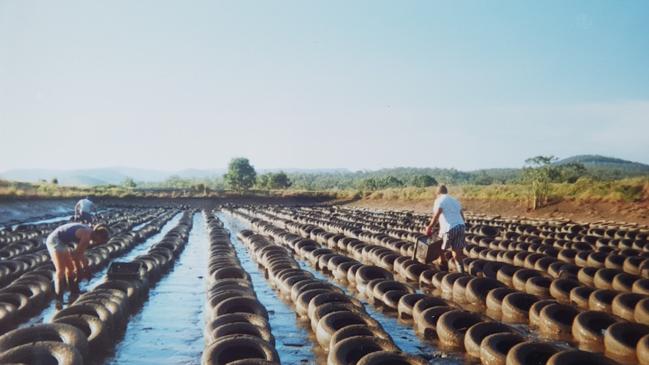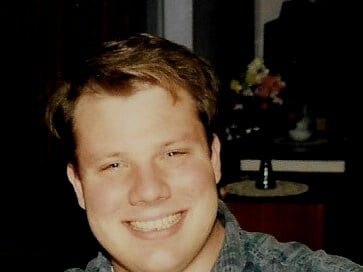Jeffrey Brooks death: The Qld cold case that has suddenly gone hot
Twenty-six years after Jeffrey Brooks’ death, a coroner has found there is “a reasonable suspicion” that a husband and wife were involved in his unlawful killing, continuing a battle for answers that has lasted more years than Jeffrey was able to live.

Police & Courts
Don't miss out on the headlines from Police & Courts. Followed categories will be added to My News.
My colleague Peter Hall and I first met Jeffrey Brooks’ parents six years ago in the conference room of one of our regional newspaper offices.
They walked in carrying boxes and bags of folders, papers, transcripts, tapes, photographs and squares of card peppered with shotgun pellet holes from their own ballistics tests. Even a gun – an old deconstructed shotgun.
It had taken them 20 years to contact a media outlet to tell the story of their dead son. But Lawrie and Wendy Brooks had spent all those years fighting to be heard.

From the moment Jeffrey died, his parents, siblings, friends and some of his work colleagues believed he’d been murdered.
On March 13, 1996, 24-year-old Jeffrey was found dead at the Beenleigh crayfish farm where he worked, slumped over a shotgun in an old ute.
Police quickly found he’d shot himself in the chest by accident, pulling the old shotgun from the car, barrel first, towards his body.
But Jeffrey’s family had a big problem with that. Jeffrey refused to use that gun, which he believed to be unsafe.
And then there were the problems at the farm.
The three New South Wales-based owners of the Beenleigh crayfish farm had hired Jeffrey, an aquaculturist, to investigate the mystery of their disappearing red claw.
The owners had suspected birds. Jeffrey had discovered something else. He believed the people being paid to run the farm – manager Hans Geiger and his wife Regine Kjellerup – were selling the stock on the side.
In the days and weeks that followed, Jeffrey told his family and friends that things had turned sour at work. He was frightened of Mr Geiger. More than frightened. He believed he was about to be killed.
Then, on March 12, the farm’s employees – including Jeffrey – were called together by the owners. They were all being let go. The farm, which had been running at a loss, was being sold.

Privately, they were still talking with Jeffrey about finding a way to carry on – without the others. Mr Geiger and Ms Kjellerup suspected this was the case.
The following day, Jeffrey was dead.
The more people we spoke to, the more evidence we found that Jeffrey was terrified. Our podcast series, Dead Wrong, heard from many of them.
As a result of the podcast, Yvette D’Ath, then the Attorney-General, ordered a second inquest.
Coroner Donald MacKenzie did not find any advancement in the forensic side of the investigation, but he did take things further than a coroner was able to in 1998.
Under the new Coroner’s Act, brought in in 2003, Coroner MacKenzie must refer a matter to the Director of Public Prosecutions if he “reasonably suspects” someone has committed a crime.
And so he did. Twenty-six years after Jeffrey’s death, Coroner MacKenzie found there was “a reasonable suspicion that Mr Johannes Wolfgang ‘Hans’ Geiger and Ms Regine Kjellerup were involved in the unlawful killing of Mr Jeffrey Brooks”.
This, he said, was based on Jeffrey’s fear for his life, motive, aggressive behaviour in the 24 hours leading up to his death, opportunity and their behaviour following the shooting. Geiger and Kjellerup have always fiercely denied allegations made against them.
It’s an important milestone in a battle for answers that has lasted more years than Jeffrey was able to live.


